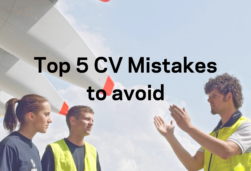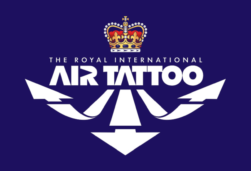University Study
With a variety of complex career paths, from aerospace engineering to space mission analysis to airline management, there are many specialist degrees at UK universities which can help you develop the skills and knowledge for a career in aerospace. With a strong tradition in aerospace engineering, over 33 universities in the UK offer aerospace engineering-related degrees alone, with international reputations for excellence in research and teaching, and using the latest technologies such as their own flight simulators!
There is also a growing number of hands-on engineering degrees such as aircraft maintenance and courses looking into the business and operations side of the sector, such as aviation management or air transport studies.
At postgraduate level, there are even more specialist routes available such as manufacturing management, human factors and more besides.
In this section find out about:
· Aeronautical and Aerospace Engineering degrees
· Accredited aerospace degrees
· Other relevant engineering subjects
· Aviation courses
Applying to University
UK students should apply for courses via UCAS who manage the whole selection process for UK students entering undergraduate study. UCAS also organise a number of fairs across the country with study advice and the chance to meet universities as well as providing lots of advice on their website. International students should contact UK universities directly for entry advice. Most universities have a specific International Office who can provide specialist advice about international qualifications and UK equivalencies for university entry. Look out also for British Council fairs throughout the world attended by UK universities.
University Entry Requirements
Maths and Physics A levels/Scottish Highers, or equivalent, are a must for entry on to aerospace engineering courses. Grade requirements can be high, but vary between universities. You will also need a third subject and this could be another Science, or something complementary; Languages, for example, are very useful as so many aerospace companies have sites world-wide!
Degree Subjects
This is about applying maths, science and technology to the research, design, manufacture and maintenance of airborne products and finding ways to continually improve existing models and create new concepts for clients such as airlines or aero-manufacturers. Areas of study include:
· aerodynamics
· structures and materials
· propulsion
· avionics
· manufacturing processes
· astronautics
Traditionally, ‘aeronautical’ engineering has a mechanical focus, covering the various aspects of conventional flight in the atmosphere and the manufacture of aircraft. ‘Aerospace’ engineering encompasses aeronautical engineering together with other aspects, such as space, automated flight control systems and avionics. However, as courses are developed, the distinctions between the two are now disappearing, with course content often overlapping.
How long does it take?
A BEng is a Bachelor’s level degree, three years of full-time study, while the MEng involves an integrated additional year of study leading to a Master’s level qualification. The alternative is to study a separate Master’s (MSc) qualification after BEng level in a specialist subject field. Many universities offer work experience opportunities during the period of study, either through a one-year ‘industrial’ placement between the second and third year of the course, or through project work or summer placement schemes. Getting experience will really help you secure employment when you graduate!
Where can I study?
As this website aims to provide you with an impartial service, we are unable recommend specific institutions. However, when making your selection, you are advised to look at the websites for universities with suitable courses and visit those which interest you the most. Take into consideration entry requirements, aeronautical study facilities, employment rates for graduates, if the course is accredited by a professional engineering institution and the university’s links with industry, as well as practical concerns such as location and living expenses etc. In the case of entry requirements, you will need to contact institutions individually.
You can also visit the University Directory for some introductory information on the institutes.
If you want to explore potential universities in a fun, interactive way, head to our blog post on choosing universities!
Accredited Aerospace Degrees
Some engineering degree courses are accredited by professional bodies such as the Royal Aeronautical Society. Engineers often work towards Chartered Engineering status during their career, which is a form of professional recognition which means they can have the letters CEng after their name to demonstrate their technical skills, engineering achievement and management competences.
Accredited degrees assist engineers in this process as completing an accredited degree helps cover the educational requirements for Chartership. For an up-to-date listing of accredited aerospace/aeronautical engineering degrees, visit the Registration and Accreditation pages on the Royal Aeronautical Society website or click here.



